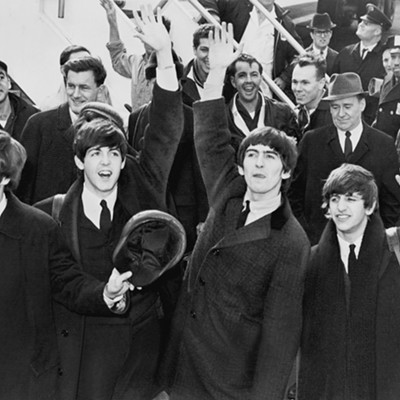Wednesday, July 13, 2011
The precarious success of Netflix
Not because of war, poverty or a hockey game, mind you. But because Netflix — the company that streams movies and television shows, and sends DVDs through the mail — announced a change in structure: Instead of paying $9.99 for both streaming movies and DVD by mail, pay $7.99 for either streaming movies or DVD by mail.
Some commenters mocked the ensuing outrage, arguing that we live in pretty spoiled times to complain about a slight limitation on our ability to have a large swath of the selection of every movie ever made at our disposal. After all, we live in privileged times.
But Netflix isn’t competing with the past. It isn’t competing with Hollywood Video and Blockbuster and the cobwebbed VHS rental systems of yore.
It’s competing with free — with Bittorrent and Megavideo and Rapidshare and icefilms.info and sundry other free video acquisition methods that can be revealed with a simple Google search. It’s competing with the slowly increasing technological competence of consumers and their rapidly increasing appetite for now.
The same digital forces that are chewing up the music and newspaper industries are gnawing at the movie and television industries. The idea that people won’t watch television or movies on laptops is rapidly being proved false — or, with the computer-TV connection system, irrelevant.
For a while, at least, industries slowly becoming obsolete are kept alive by inertia. Bob Johnson, 60, always paid for a subscription for the paper newspaper, so why would he stop now?
But inertia fades, eventually. What once requires technological savvy becomes pervasive.
That’s the worrisome thing about Netflix. There are always several ways to combat things that are free and illegal.
1) Be faster.
2) Be easier.
3) Have a wider selection.
4) Be extremely cheap.
Consider the runaway success of Seattle-based computer game developer Valve’s digital download service Steam. Piracy of computer games is complicated, involving mounting virtual hard drives and such. The selection of games available to pirate is iffy. But Steam made downloading easy. Suddenly, it was more convenient than buying a CD. You could lose a CD. But with Steam’s library of your purchased videogames is eternal, you can always install a game.
And oh, the sales. A summer sale last week offered dozens of videogames at prices that were slashed from $60 to less than $10. To pirate, well, that’d just be silly.
For a while, Netflix’s great deal and nigh-omniscient selection was a good enough deal that piracy became a less attractive option. When I wanted to watch Der Krieger und die Kaiserin, with subtitles, I signed up for Netflix instead of attempting to illegally download or illegally stream it. Finding obscure films online is tricky. On Netflix it's not.
But as Netflix increases in price, and as it gradually decreases its DVD selection, it becomes a less attractive option. In the long term, that may have consequences. Because while Netflix is still a screaming good deal, so is free low-risk piracy. Studios would do well to remember that.
Tags: Television , Movies , TV , Image



















